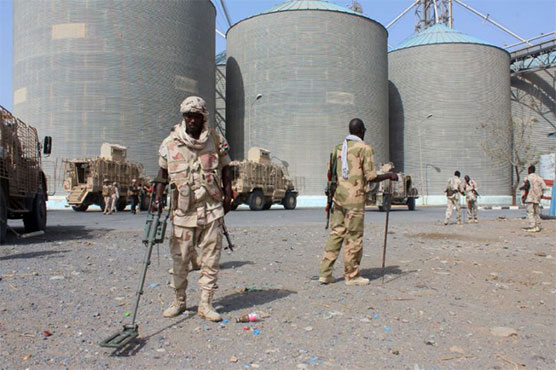UN wants Yemen's Huthis to stop blocking access to grain warehouse

US aid chief urged Yemen's Huthi rebels to grant access to a food storage site in Hodeida.
UNITED NATIONS (AFP) - The United Nations aid chief on Thursday urged Yemen s Huthi rebels to grant access in the coming days to a food storage site in Hodeida containing enough grain to feed millions of starving civilians.
The Huthis are refusing to allow UN aid agencies to cross front lines and reach the Red Sea Mills, which are located in a government-controlled area, because of security concerns, UN aid chief Mark Lowcock said.
Yemen s government and Huthi rebels agreed during talks in Sweden in December to a ceasefire in Hodeida, a redeployment of forces and access to humanitarian aid, under a deal seen as a major step towards ending the devastating war.
"Access to the mills grows ever more urgent as time passes and the risk of spoilage to the remaining grain increases," said Lowcock in a statement.
"I implore all parties, in particular Ansar Allah affiliated groups, to finalize an agreement and facilitate access to the mills in the coming days."
Ansar Allah is the official name of the Shiite Huthi movement that controls Sanaa, much of Hodeida and other parts of Yemen in a war against the Saudi-backed Yemeni government.
The Red Sea Mills silos are believed to contain enough grain to feed 3.7 million people for a month but the granary has remained off-limits to aid organisations for more than four months.
The latest negotiations on securing access to the warehouses have dragged on and Lowcock deplored that a solution remained "elusive."
Hodeida port is the entry point for the bulk of Yemen s imported goods and humanitarian aid, providing a lifeline to millions in the Arab world s poorest country.
The United Nations has described Yemen as the world s worst humanitarian emergency, with 10 million people on the brink of famine.
Last month, two silos at the Red Sea mills were hit by mortar shells, sparking a fire that destroyed some of the grain -- probably enough to feed hundreds of thousands of people for a month, the United Nations said.

